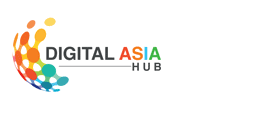Call for application now closed
The Berkman Center for Internet & Society, in collaboration with its Asian partners, including the UNU-CS and the C-Centre, as well as theGlobal Network of Interdisciplinary Internet & Society Research Centers (NoC), is excited to invite you to submit reflection pieces in the form of short essays (1500-2000 words) for a collection entitled, “Digital Good Life in Asia’s 21st Century.” This collection, which is supported by a generous gift from Google, will be published in November 2015 in the context of an international and interdisciplinary symposium on Digital Asia in Hong Kong. Papers submitted by students will be considered for an award offered for the best three papers.
Topics and Possible Perspectives
Specifically, we would like to invite you to submit original contributions that address one of the following topics:
- Mobile: For instance, how does mobile access to knowledge, economic information, and news change political, economic and entrepreneurial behavior? What are best practices for expanding access and including underserved communities? How does always-on and always-available change human relationships and cultural practices?
- Internet of Things: For instance, what can we learn from Hackerspaces and IoT as grassroot movements in various Asian countries? What are scenarios of a good life that are supported by IoT technology? What are examples of technologies that are based on Asian values?
- Innovation & Creativity: For instance, how might various Asian traditions and values interact with a remix culture? How can digital technology foster innovation and creativity in the Asian context?
- Digital Economy Ecosystem / Observatory: For instance, what are the arguments for the creation of a Asian Digital Economy Observatory? How would such an observatory improve the availability of data and comparability of the current practices on key Internet issues?
- Digital Literacy: For instance, what are examples that demonstrate the increasing importance of technological literacy for everyday participation in private and public affairs? What are good/best practices to foster digital literacy among different populations?
- ICT4D: For instance, what are the roles and relevance of digital technologies to social and political development especially in emerging parts of Asia? How can these technologies reach and empower the most marginalized among us? How can everyone sustainably enjoy a good life?
- Digital Rights: For instance, how do new technologies impact digital rights? What can we learn from the discussions on digital rights, cultural values, and internet sovereignty in various Asian countries? What kind of digital rights are necessary for a good life?
Within your selected thematic frame, the essay could, for instance, provide an overview and/or analysis of relevant fields in Asian countries; a comparative view between Asian countries; identify, highlight, discuss, and/or reflect upon key findings, insights, stories, or examples related to the topics above; cover additional issues, phenomena, visions, or questions that you think may be helpful in understanding these topics; or include interesting examples of tools, case studies, initiatives/efforts in Asia, or focus on a specific mode, process or method—something that you are excited about. Additional ideas are welcome!
Format Guidelines
Regarding length and format, the essays should:
- Be written in English;
- Be between 1,500-2,000 words in length;
- Use APA citation style (no footnotes; only in-text citation with a reference list at the end);
- If you intend to use images in your essay, please make sure they are of good quality (high resolution). Please indicate in the text where the images should be placed and make sure you submit the images together with your text;
- If helpful, include a list of 5-8 resources, including the relevant URLs, at the end of your text (e.g. scholarly research, examples and case studies, books, people, tools, etc);
- Make sure to include a captivating title;
- Below the title, please add your name and affiliation;
- Submit your text as a Microsoft Word document (.doc or .docx) or Google doc.
Acceptance and Submission Process
Please send a 1-page abstract of your proposed essay as well as your contact information to apruitt@cyber.law.harvard.edu bySeptember 16th, 2015 [extended deadline] for planning and initial feedback. Final submissions are due to the same email address bySeptember 29th, 2015 [extended deadline].
The Berkman team will inform contributors by the beginning of October 2015 whether or not their essay has been selected for publication. The review will be conducted by an international editorial team, and the Berkman Center will help with language editing for selected essays. The finalized contributions will be published under a Creative Commons Attribution 4.0 International License.
Student Writing Competition
As part of this call for essays, we will also be holding a student writing competition. From the essays submitted by current students, we will select the top three. First place will receive a cash stipend of $3000; second place will receive $2000; and third place will receive $1000. Information about the acceptance process, eligibility, and prize payment is as follows.
- Eligibility: To be eligible for prize money, essays must be written by students over the age of 18, currently pursuing a post-secondary degree (e.g., bachelor’s, master’s, PhD, or post-doctoral research).
- Acceptance Process: The Berkman Center will inform students in October 2015 whether or not their contribution has won a prize.
- Prize Payment: The Berkman Center will provide a stipend to the students selected for the three best submissions, subject to applicable law.
